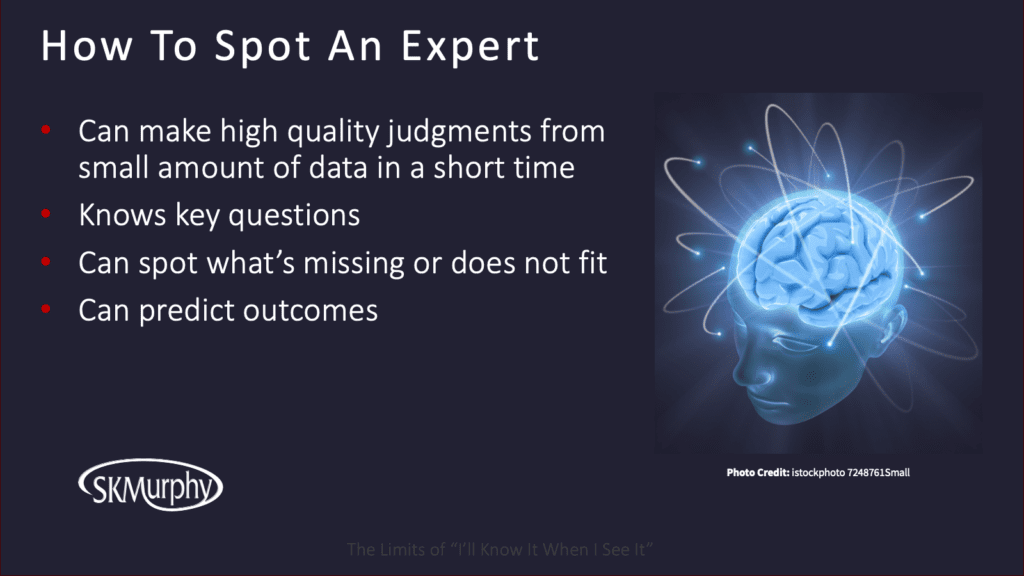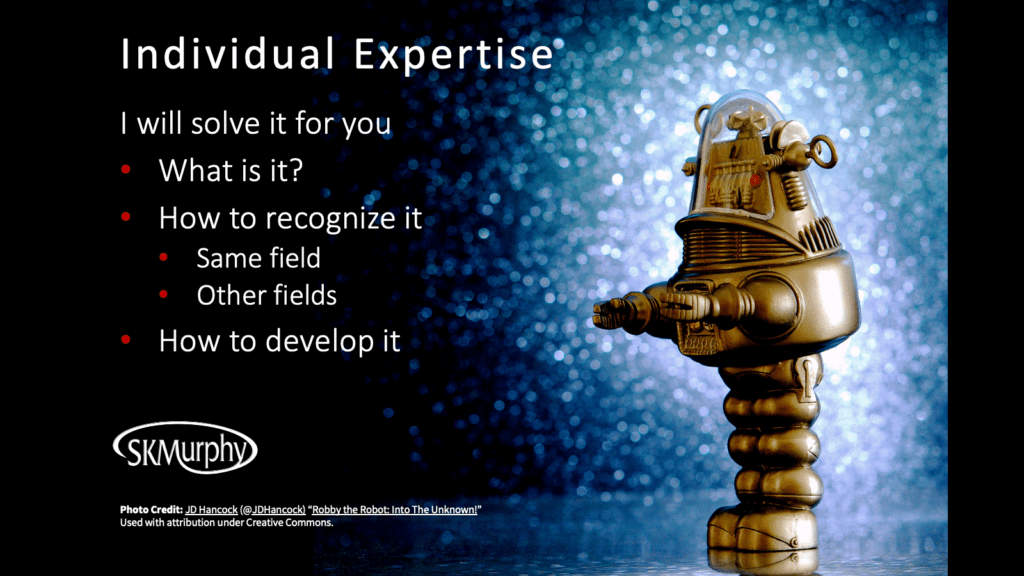Recognizing and developing expertise are critical skills for entrepreneurs. Expertise is often a key differentiator for new products.
Recognizing and Developing Expertise
Expertise builds credibility and ensures sustainable growth by mastering your industry’s complexities and anticipating market needs. In his book ” Sources of Power,”Gary Klein captures the essence of expertise by highlighting two critical aspects: the ability to perceive nuances invisible to novices and the capacity to make high-quality decisions under extreme time pressure. This blog post explores expertise, how to recognize it within your field and others, and the steps to develop it.
What is Expertise?
Expertise is a refined skill set and deep knowledge base in a specific domain. Experts are not just experienced; they have an intuitive grasp of their field’s subtleties. According to Klein, experts can identify typical and atypical situations and adapt their strategies accordingly. They excel under pressure, making swift, accurate decisions that often elude novices.
Recognizing Expertise in Your Field

Identifying expertise within your field involves several indicators
- Pattern Recognition: Experts can quickly identify patterns and anomalies. For instance, a seasoned doctor can diagnose a rare condition from subtle symptoms that might confuse a less experienced physician.
- Efficient Decision-Making: Experts make decisions rapidly without compromising quality. Emergency responders who can assess and act decisively in crisis situations are an example of this.
- Adaptability and Improvisation: Experts can devise innovative solutions when unexpected challenges arise. For example, experts can find a workaround for a complex bug under tight deadlines in software development.
- Insightful Questions: Experts know the right questions to ask, which helps them gather essential information swiftly and accurately. For example, a lawyer might ask specific questions to uncover critical facts that can turn a case.
Recognizing Expertise in Other Fields
While recognizing expertise in unfamiliar domains can be challenging, certain universal traits can guide you:
- Reputation and Peer Acknowledgment: Experts are often recognized by their peers. Awards, publications, and leadership roles in professional organizations can be strong indicators.
- Consistency of Success: Look for a track record of consistent performance. An expert chef, for example, consistently produces high-quality dishes and receives positive reviews.
- Depth of Knowledge:Experts have a profound understanding of their field’s principles and intricacies. Engaging in conversations or observing their work can reveal their depth of knowledge.
- Teaching and Mentorship: Experts often share their knowledge through teaching or mentoring. Their ability to convey complex concepts clearly is a hallmark of expertise.
Developing Expertise
Developing expertise is a journey that requires dedication, curiosity, and continuous learning. Here are some steps to cultivate expertise in your field:
- Commit to Deep Understanding: Invest time in learning the foundational principles and advanced concepts in your chosen domain.
- Predict and Review: Write down your predictions for the results or outcomes you expect from your decisions and the actions that flow from them. Review these at appropriate intervals to improve your ability to diagnose a situation and take effective action.
- Reflect and Adjust: Regularly reflect on your experiences and learn from your mistakes. Use insights gained from reflection to adapt your approach and methods.
- Seek Feedback: Constructive feedback from peers, mentors, and those you serve can help you identify areas for improvement and strengths you should build on.
- Stay Up to Date: Fields evolve, some quite rapidly; investing effort to stay current with the latest developments is essential. Engage in continuous education through courses, workshops, and professional networks.
- Mentorship: Find a mentors who are established experts in your field. Their guidance can accelerate your learning and provide valuable insights.
Conclusion
Expertise is not just accumulated knowledge; it’s the know-how to apply your knowledge to observe, question, diagnose, and take effective action in a variety of circumstances. Recognizing and developing expertise involves understanding its essential characteristics and committing to continuous improvement. The hallmarks of expertise are pattern recognition, decision-making efficiency, adaptability, insightful questioning, and a deep, evolving knowledge base. Gary Klein aptly notes that experts see the invisible and make decisions that shape outcomes, even under pressure. Develop your expertise through learning, experience, reflection, and mentorship.
Short video on individual Expertise
Related Blog Posts
- Are You Building An Expertise Based Startup?
- Building an Expertise Based Startup (Part 2)
- We Help Teams of Experts Find Leads and Close Deals
- 8 Tips For Interviewing Experts
- How To Ask An Expert For Help
- Bill Meade: Customer Development and Schmexperts
- Slides and Audio From “Leading A Team of Experts” at PMI-SV Sep-17-12
- Self-Mastery, Expertise, Connections, and Perseverance
- How Do I Move From Being Capable to Offering Expert Consulting?
- Essentials of Selling Your Expertise In a Webinar
- Professional Services Innovation: Customer Insight, Expertise, and Technology
- Record to Remember, Pause to Reflect
- When Exploring Keep a Log
- Marcelo Rinesi: The Expertise Light Speed Barrier
- Preserving Trust And Demonstrating Expertise Unlocks Demanding Niche Markets
- Combine Clear Goals with Delegation Based on Expertise for High Impact
- Navigating the Limits of “I’ll Know It When I See It”
Image Credits:
- How to Spot an Expert Brain Image Licensed from iStockPhoto #7248761
- Individual Expertise uses JD Hancock (@JDHancock) “Robby the Robot: Into The Unknown!” with attribution under Creative Commons.

